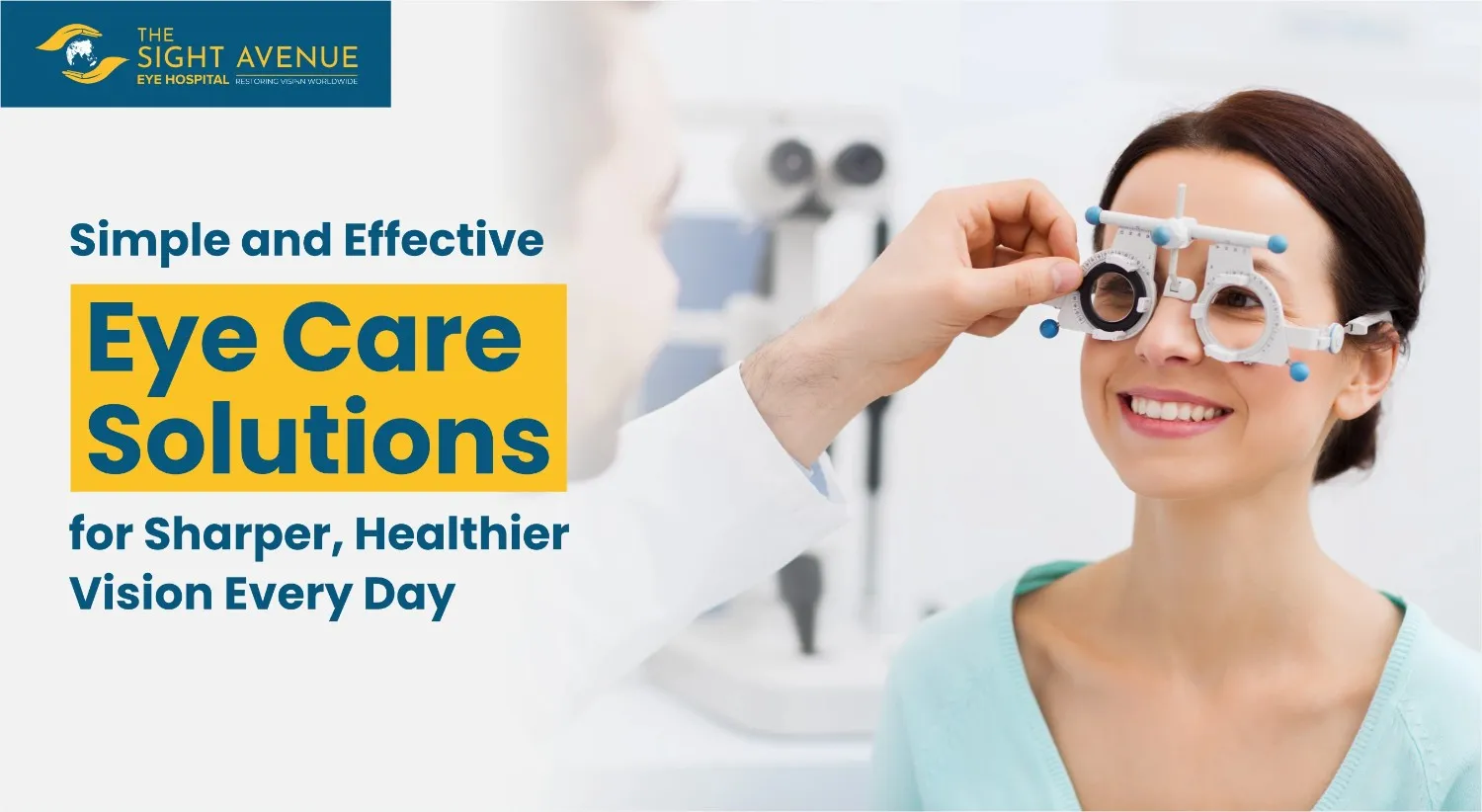What are the signs of cataracts?

Introduction:
Many people worldwide have cataracts. A cataract is a common age-related eye condition characterized by the clouding of the eye's natural lens, leading to blurred vision and visual impairment. This condition often develops gradually and can significantly impact a person's ability to see clearly, but it can be effectively treated with surgical removal and replacement of the cloudy lens.
Symptoms of Cataract
Here are a few symptoms which may help you to recognize the cataract in an early phase, which includes:
Blurred Vision
Cataracts usually cause blurred vision. As the cataract develops, the lens becomes increasingly cloudy, causing vision to become blurry. Initially, this blurriness may be subtle, making it challenging to read or see distant objects. Over time, the blurriness progresses, making daily activities like driving or watching TV more difficult. If you are facing this symptom you should consult a doctor for cataract surgery in Delhi.
Sensitivity to Light:
Cataracts can make the eyes more sensitive to light. Cataracts may cause squinting or discomfort under bright lights. This sensitivity occurs because the cloudy lens cannot properly regulate the amount of light entering the eye. As a result, individuals with cataracts often find themselves avoiding bright environments or experiencing glare from light sources.
Difficulty with Night Vision:
Another cataract symptom is impaired night vision. Cataracts can cause difficulty seeing in low-light conditions or at night. This can be particularly problematic when driving, as headlights and streetlights may appear blurry or surrounded by halos. Consult an eye doctor if your night vision significantly worsens.
Color Distortion:
Cataracts can affect how you perceive colors. As the lens becomes cloudier, it may impact color vision, making colors appear faded, yellowed, or less vibrant. Certain hues may be particularly challenging to distinguish, leading to difficulties in tasks that require color differentiation, such as choosing matching clothing or identifying traffic lights.
Double Vision:
Double vision, also known as diplopia, can be a cataract symptom. This occurs when the cloudy lens causes light to scatter, resulting in overlapping images. The double vision experienced with cataracts is different from other causes of diplopia, as it often affects one eye at a time. Closing one eye usually resolves the double vision temporarily. If you notice double vision or ghost-like images, it is crucial to seek medical attention promptly.
Faded or Yellowed Colors:
Another cataract symptom is a change in how you perceive colors. You may notice that colors appear faded, less vibrant, or have a yellowish tint. This occurs because the clouded lens filters and distorts the incoming light, affecting your color perception. Cataract sufferers have problems distinguishing colors, especially blue and purple.
Changes to the prescription for eyeglasses:
Cataracts may cause frequent glasses prescription changes. As the cataracts progress, the shape and size of the lens can change, causing a fluctuation in visual acuity. This can lead to the need for frequent adjustments to corrective lenses. Discuss cataracts if you're seeing your optometrist more regularly due to vision changes.
Difficulty Reading or Performing Near Work:
Cataracts can make reading or performing tasks that require close vision more challenging. You may find yourself struggling to read small print, such as books, newspapers, or digital screens. Close-up work like sewing, writing, or using a computer may also become increasingly difficult. As cataracts progress, the ability to focus on nearby objects can be significantly affected, requiring individuals to hold reading material at arm's length or use magnifying aids.
Seeing "Halos" Around Lights:
Another Cataract symptom is the perception of "halos" around lights. This is most noticeable in low-light or bright-light sources. The cloudy lens of the eye scatters light, creating a halo-like effect around light sources. Halos can interfere with vision, especially when driving at night or in situations where visual acuity is crucial. If you consistently notice halos around lights, it's important to consult an eye care professional.
Vision Improvement with Brighter Light:
In some cases, individuals with cataracts may notice a temporary improvement in their vision when exposed to brighter light. This phenomenon occurs because increased light levels can compensate for the cloudy lens by allowing more light to reach the retina. However, as cataracts progress, this temporary improvement diminishes, and vision worsens regardless of light conditions.
Visit here: Best Eye Hospital In Delhi
Conclusion
Cataract is a serious condition, and you cannot take this disease lightly; that’s why it is important to notice these symptoms and get the right cataract surgery. If you don't get the early treatment, then it may cause you vision loss and nearsightedness, which can disturb your life. So, it is important to recognize cataract symptoms early and go for the right treatment to prevent cataracts.
Related Blog
Eye problems? Searching for an eye specialist near me in Delhi NCR? The Sight Avenue has 5 eye clinics in Delhi NCR. Contact us today!
Eye Hospital in Delhi
- The Sight Avenue
- The Sight Avenue
- The Sight Avenue
E-82-A, Ground Floor, Hansraj Gupta Rd, Greater Kailash I, New Delhi, Delhi 110048
Email:enquiry@thesightavenue.com
Tel : 011-4666 0666
Mob : +91-8883330799
Fortis Hospital, Escorts Okhla, New Delhi
Fortis Hospital, Vasant Kunj, New Delhi





